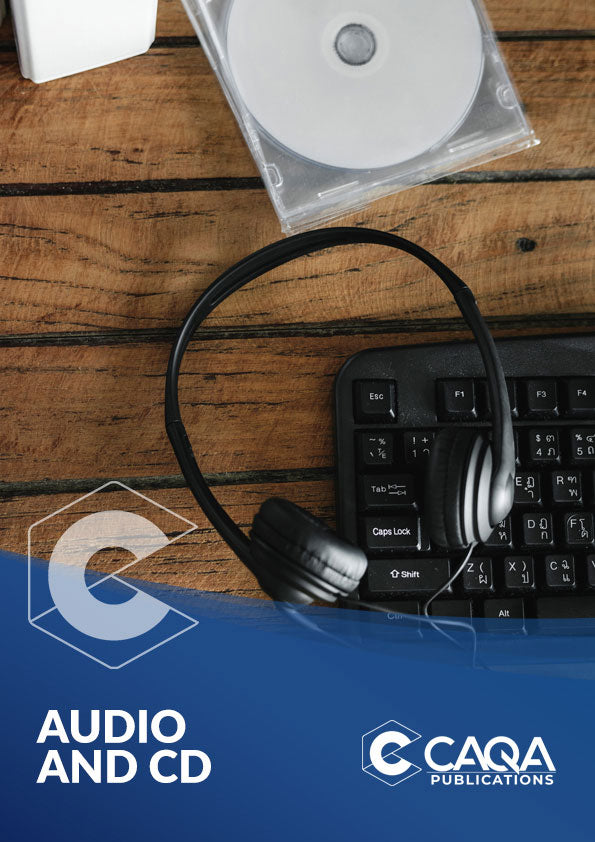The VET Sector News - December 2019
Poorer Australian students are 18 months behind their better-off peers at school, a report by Deloitte has found.
And regional students were on average eight months behind at school.
If academic results could be improved by 50% for poorer and Aboriginal students, the economy could get a boost of more than $200bn over 50 years, the report released on Sunday said.
For more information, please read here.
Bumpy road ahead for Australian universities
Australia’s higher education success has rested on policy reforms that started in the late 1980s. These reforms resulted in the amalgamation of institutions and the creation of a unified national system; an increase in the number of publicly funded places available for study; and a new funding model based on discipline and level of study, among many other changes.
The main argument for the reforms, which continued into the 2000s and were influenced by neo-liberal forces which underpinned market-driven approaches, was that Australia needed to be more competitive internationally.
With each subsequent wave of reform, the Australian government further advanced liberalisation, heightened institutional competition and increased deregulation and marketisation of the higher education sector.
For more information, please read here.
Chinese students paid to rort Australian universities as government tackles cheating
In a toilet stall at Monash University, I see advertisements in Chinese for essay writing services plastered across the door.
Every time I go on Chinese social media there they are again. International students with poor Englishcan pay to have all their essays completed for them by ghostwriters.
Two-and-a-half years ago, I came to Melbourne from Shanghai in China to start a master's degree in journalism because standards here are said to be very high. I expected to find a fair and honest academic environment.
But what I found when I arrived in Australia was a thriving contract cheating industry.
The proliferation of advertisements on the Chinese social media app WeChat suggests scammers are increasingly targeting Chinese students, the biggest international student group in Australia.
Universities around the world compete for a slice of the education market. Indeed, international student fees contributed 23.3 per cent to Australian universities' revenue in 2017.
For more information, please read here.
The hidden stories of Australia's first women working in computing
In 1907 Prudence Valentine Williams became one of 72 Australian women tasked with cataloguing all of the stars in roughly one fifth of the night sky.
Williams was just 15 years old when she was recruited to work at the Perth Observatory as a "star measurer" on an ambitious international project called the Astrographic Catalogue.
The 72 women who worked on the catalogue in Australia were also among the very first women in the country to work in computing.
Their story was almost entirely omitted, and nearly forgotten — and they aren't the only women of computing who have been sidelined in the history books.
For more information, please read here.
TAFE going backwards under Annastacia Palaszczuk
A national biennial survey of employers released today shows that employers in Queensland are losing confidence in TAFE.
Shadow Minister for Training and Skills Development Fiona Simpson said it was a concern that only 41.6% of employers with apprentices or trainees are choosing TAFE.
"This is a drop of more than 10% since the Palaszczuk Labor Government came to power in 2015," Ms Simpson said.
"In the last two years alone, confidence in TAFE dropped more than 7%.
"Annastacia Palaszczuk's plan for TAFE clearly isn't working.
Since March 2015 apprenticeship and traineeship completions have fallen by nearly a third (29%) and there are also almost 9000 fewer students in-training under Labor.
"Apprenticeship and traineeship commencements also fell by over 5% since 2018.
For more information, please read here.
Trade apprenticeships: The most popular ones in Australia and how to sign up
New entry-level jobs are being created across the trades, with 2.9 percent more people starting an apprenticeship this year than last.
The biggest jump in commencements were within the fields of automotive and engineering (up 8.4 per cent year on year) and electrotechnology and telecommunications (7.2 per cent), the Federal Government’s NCVER March quarter figures show.
There were 4270 apprentice automotive electricians and mechanics (up 6.1 per cent), 1975 apprentice mechanical engineering trades workers (14.8 per cent), 1710 apprentice fabrication engineering trades workers (10 per cent) and 1440 apprentice electronics and telecommunications trades workers (13.8 per cent) who started their training.
For more information, please read here.
Government funded training effort appears to rise, but is it real?
The number of students in government-funded training in Australian has shown a rare rise, after years of bad news for vocational training in Australia.
A report by the National Centre for Vocational Education Research (NCVER) shows a rise in government-funded students this year.
However the research organisation warns that the rise may be a result of a change in the way student numbers are reported.
A series of NCVER reports has shown Australia’s training effort has been steadily falling since 2014 ranging from STEM education in schools to apprenticeship completions, as reported in numerous stories in @AuManufacturting.
For more information, please read here.
Supporting a job ready generation
The Tasmanian Liberal Government is investing in the skills and training needed to boost apprenticeship and trainee numbers and deliver a job ready generation.
We want to support our kids to succeed, which is why we’re delivering a target of 300 new apprenticeships and traineeships as part of our Growing Apprenticeships and Traineeships: Industry and Regionally-led Solutions program.
A further seven projects will be supported under the initiative totalling $1.3 million, and will include small to medium enterprises operating in the early childhood, health care, aged care, disability, aquaculture and construction industries.
This program specifically targets industries and regions that have barriers preventing employers from hiring apprentices and trainees. It takes a demand-driven, industry-led approach and uses a successful model of collaboration between a number of partners.
Tasmania continues to perform better than the Australian average across most key indicators with 5,140 more apprenticeship and traineeship commencements in the past 12 months, and we have a target to increase the number of apprentices and trainees by 40 per cent by 2025.
For more information, please read here.
Vocational traineeships to be fee free from January 2020
Minister for Skills and Tertiary Education Geoff Lee and Minister for Education and Early Childhood Learning Sarah Mitchell are calling on employers to take on more trainees following the launch of a new $54.3 million NSW Government Budget initiative to make government-subsidised traineeships fee-free.
Traineeships, through the NSW Smart and Skilled vocational education and training (VET) system, will join apprenticeships in being fee free from 1 January 2020.
Mr Lee said the NSW Government would be picking up the tab for the fees on all new traineeships, including school-based traineeships.
In announcing the initiative at Friendly Faces Childcare in Padstow, Mr Lee and Ms Mitchell congratulated the centre on its enviable reputation for training early childhood workers.
“We hope they’ll continue their great work and take on many more trainees after this announcement,” Mr Lee said.
For more information, please read here.
Roadmap to national VET sector reform
The Council of Australian Governments (COAG) Skills Council met in Brisbane today to agree on an ambitious approach to enhancing the vocational education and training (VET) system.
Ministers discussed a draft COAG VET Reform Roadmap that will guide reforms to improve the vocational education and training sector.
The roadmap will reinforce the priorities agreed at the Council’s inaugural meeting in September: to ensure VET is responsive to the job market, employers, industry and learners; to support public confidence in the quality and value of the sector; and to ensure all prospective students and employers can access information and training easily.
Minister for Employment, Skills, Small and Family Business and Chair of the Skills Council, Senator the Hon Michaelia Cash, said that the second meeting reaffirmed the commitment of the Commonwealth, States and Territories to strengthening and modernising the VET system.
For more information, please read here.
Inspiring VET alumni stories shared via new portal
The Morrison Government is making it easier to engage with Australia’s world-class vocational education and training (VET) graduates, training providers and employers.
The Australian VET Alumni portal, available through MySkills.gov.au, provides a place to showcase the inspirational professional journeys of the best and brightest in vocational education and training.
Minister for Employment, Skills, Small and Family Business, Senator the Hon Michaelia Cash, said she was delighted to launch the portal to coincide with the 2019 Australian Training Awards.
“I am passionate about raising the profile of Australia’s VET system and highlighting the exciting and financially rewarding opportunities it provides across all industries,” Minister Cash said.
For more information, please read here.
New Australian Industry and Skills Committee Chair
The Morrison Government is ensuring the nation has the agile, skilled workforce it needs, with the appointment of the new Australian Industry and Skills Committee (AISC) Chair. Though the AISC industry plays an integral role in the Australian vocational education and training sector.
Minister for Employment, Skills, Small and Family Business, Senator the Hon Michaelia Cash, today announced Emeritus Professor Tracey Horton AO has been appointed as AISC Chair.
The AISC gives industry a formal role in approving VET training packages for implementation. It will work with government to strengthen industry engagement to drive improvements for courses and training based on industry need.
The important work of the AISC, Skilled Services Organisations and Industry Reference Committees is continuing as the Morrison Government implements its Skills Package and works with the states and territories to reform the VET sector.
As Chair of the AISC, Professor Horton will lead this work bringing a wealth of experience from a range of government and not-for-profit boards, and I thank her for taking on this important role,” Minister Cash said.
For more information, please read here.
Better support for Australian Apprentices and Employers
The Morrison Government is making it easier than ever for employers to recruit, train and retain apprentices.
Minister for Employment, Skills, Small and Family Business, Senator the Hon Michaelia Cash, today announced the seven providers that have been chosen to deliver the expanded and improved Australian Apprenticeship Support Network services nationally.
“The Australian Apprenticeship Support Network is a key component of the Morrison Government’s investment in vocational education, training and apprenticeships, to support the skills needs of employers and industry,” Minister Cash said.
“We are improving the Support Network to help get even more apprentices enrolled and trained up for rewarding careers and to help meet employers’ skills needs.”
For more information, please read here.
National vocational education regulator to focus on training excellence
A review of the national regulator for the vocational education and training sector, the Australian Skills Quality Authority (ASQA), has commenced with a focus on the regulator’s governance, policies and culture.
Minister for Employment, Skills, Small and Family Business, Senator the Hon Michaelia Cash, said excellence in training lies at the heart of the Government’s skills agenda.
“The Government’s rapid review will inform a 12 to 18 month program of improvements that will ensure regulation by ASQA is transparent and effective,” Minister Cash said.
For more information, please read here.
































 Talk to our experts now!
Talk to our experts now!
 03 8103 8000
03 8103 8000









